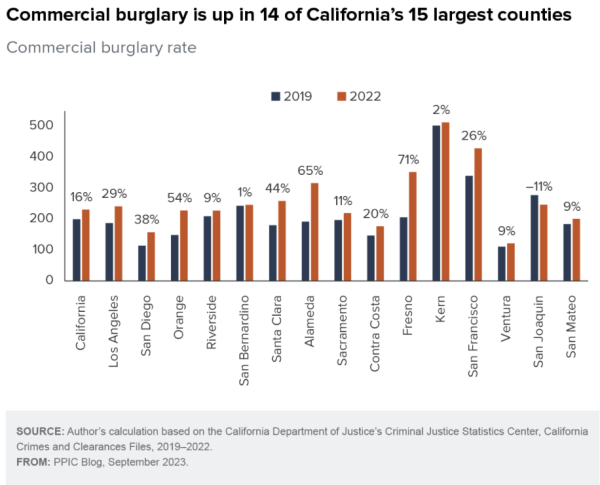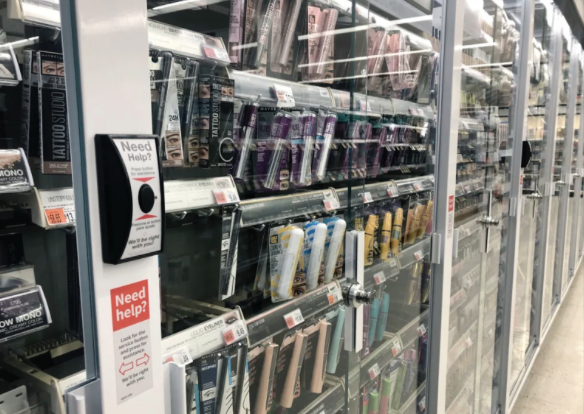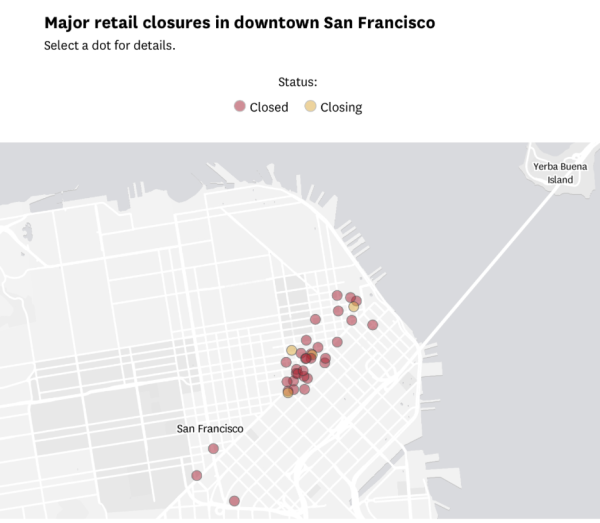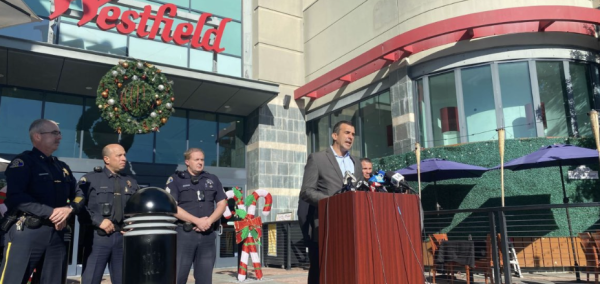Springing from the offsets of COVID, inflation has bred more opportunities for shoplifting in the Bay Area to occur: thieves are increasingly stealing from retailers, causing a cycle of economic outbreak and inflation. Although shoplifting seems like a simple fix, it’s not as easy to get rid of these pesky bandits as we might think.
On September 30th, 2023, Governor Newsom signed into law Senate Bill No. 553, essentially making it illegal for retail workers to confront looters, burglars, and shoplifters. The purpose of this bill is to protect employees against potential danger at their place of work. Despite some netizens falsely claiming that the new law is “legalizing crime”, state Senator Dave Cortese was adamant on the importance of a violence prevention plan for the workers and shoppers. Yet, despite this rationale behind the legislation, a whole new world of opportunities for crime is now opening up for shoplifters to exploit the law and get what they want. Sadly, we are nowhere closer to finding a solution for hindering shoplifting compared to even before the bill was signed.

The consequences of this shoplifting phenomenon is directly falling on the overworked and fed-up retail workers who have to deal with multiple thieves a day. A Walgreens employee working in San Francisco told a reporter that thieves come around 15-20 times per day, and many items in the store are locked behind chains and require an employee to unlock before they can buy it. Large corporations can handle losses on shop-lifting, but small businesses can’t afford to replicate what shoplifters have stolen, and many demand action from the city and the mayor.

In light of all this chaos, why is there so much inaction when dealing with shoplifters? Well in California, Penal Code 459.5 states that shoplifting is defined as “entering a commercial establishment with an intent to commit larceny while it’s open during regular business hours and the value of the property taken, or intended to be taken, is $950 or less. Any other entry into a commercial business with intent to commit larceny is burglary.” Therefore, any theft under $950 is only considered a misdemeanor, which means it doesn’t lead to anything punitive by law.
Some retail companies have given up on prosecuting shoplifters who consistently steal products, instead opting to leave cities deemed “shoplifting hotspots entirely”. The following brands have already closed their stores in San Francisco: Old Navy, Office Depot, H&M, Nordstrom, Wholes Food, Banana Republic, and more. Target’s CEO announced the closure of three of its stores in San Francisco and nearby Oakland, also due to shoplifting concerns.

If you think that shoplifting is a far away problem, think again: shoplifters in San Jose are stealing goods from shops like TJ Maxx and Macy’s, and from malls such as Westfield’s Oakridge mall. Not worrying about getting caught, these shop-lifters are stealing goods en masse, and not just the occasional shirt or sock. If this continues, San Jose will turn into a San Francisco-esque situation, with many retailers leaving and not bothering to take the risk staying.
Even worse, Shoplifters are starting to fight against the workers, who aren’t even trying to engage or catch them.
Small business owners have lost faith in the police when reporting incidents such as these, with Rick Karp, president of Cole Hardware saying

Feeling helpless and seeing their community get worse and worse by the day, both the workers and business owners have to deal with the impossible decision of sticking with the community and taking the financial losses but risking their safety, or moving out of the place they’ve known for so long.
The choice shouldn’t have to fall onto the common worker or those who run the stores that are getting mercilessly robbed daily; instead direct action from political leaders is needed. Disagreement is present on how to handle this situation, with many saying that stricter laws and enforcement wouldn’t help the situation, but both sides can agree that the current situation has many issues.
Putting a bandaid over this situation with a law or two is not going to be a permanent solution; instead attentive care and flexible politicians could be the only hope in stopping the spread of shoplifting. Disencouraging those who shoplift with decisive action, or any form of action, would finally put relief on those who’ve been taking the brunt of the consequences of inaction for far too long: the average person who is just trying to make a living.


